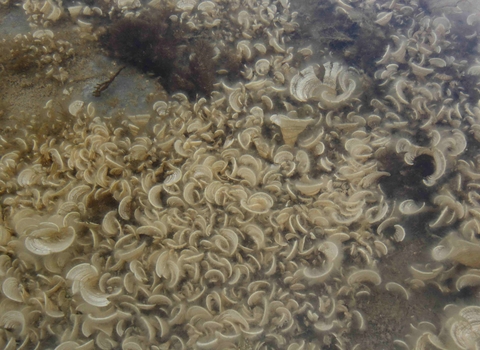
Peacock's tail ©Julie Hatcher

Peacock's tail ©Julie Hatcher
Peacock's tail
A scarce but distinctive brown seaweed with curved, funnel-shaped fronds. It is a warmer water species at the northern edge of its range on the south coast of England.
Scientific name
Padina pavonicaWhen to see
April to SeptemberSpecies information
Category
Statistics
Grows to 10cm tallNationally scarce. Priority UK BAP species. Feature of Conservation Importance.
Habitats
About
Peacock’s tail is a distinctive seaweed, unlike any other species in the UK. It's less colourful than its name suggests and has an alternative name of turkey-feather algae. It grows in rockpools in scattered locations along the south coasts of England and Wales.The creamy coloured, funnel-shaped fronds feel papery and chalky to the touch and get torn with age. On close inspection they are covered in fine hairs which give them a slightly fuzzy appearance underwater.
